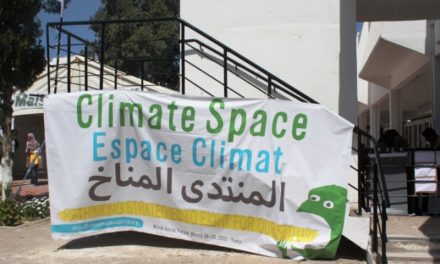By Nicola Bullard
A report of the international advisory committee formation meeting 9 & 10 June, 2001, Sao Paolo, Brasil
Porto Alegre is a symbol of resistance and a symbol of hope and the good news for everyone who was at the first World Social Forum in January this year (and for all those who wish they had been) is that the
people of Brasil and Rio Grande do Sul are inviting us again next year.
Conceived as a counter weight to the Davos World Economic Forum, the Porto Alegre World Social Forum carved out a space in the debate about globalisation and its alternatives that is ready to be filled and expanded. To do this, the Brasilian organising committee realised that the ‘ownership’ of Porto Alegre must be expanded, and that the event itself must continue to push geographical, social and political boundaries. In May, representatives from all parts of the world were invited to Sao Paolo by the Brasilian committee to do just this. The agenda was divided into four parts: an evaluation of the first WSF, agreement on guiding principles, the establishment of an international mechanism, and the outline of an agenda and methodology for the next meeting.
On all the issues there was an open and constructive debate. Many of the criticisms of the first WSF – especially on race, gender and geographic representation – were taken up by the coordinating committee and reflected in the proposals for the working methodology. There was constant reference to class, gender and race as central elements of analysis.
The proposal for a World Social Forum Charter of Principles to be “respected by all those who wish to take part in the process and to organise new editions of the World Social Forum” also showed a strong intention to be inclusive, non-sectarian and open. It was accepted with some changes by the meeting.
The Brasilian Committee’s proposal to establish an ‘international advisory committee’ was debated more rigorously. Many people objected to the word ‘advisory’ and stressed the need to build a process through collective ownership. At the same time, though, there was a strong affirmation of the key role played by the Brasilians, recognising their extraordinary initiative and efforts. Central to this debate was the agreement that in 2002, and in the future, World Social Forums will be held in many different places, reinforcing and building on the vision of Porto Alegre. There are already proposals to hold forums in Ecuador and Bamako on or around the same time as the Porto Alegre event.
The discussion was concluded by Joao Pedro Stedile, a leader of the Brasil’s landless movement, MST, who proposed — amongst other things — the establishment of a permanent and open international council with strong links between local organising committees (wherever they may be) and the international networks.
Themes for next year’s Porto Alegre World Social Forum were proposed by Francois Houtart in his presentation on the “state of globalisation.” He characterised globalisation as a fragmenting and destructive process; destroying communities, cultures, economies and the environment. From this, the themes of rebuilding and recreating society, nature, economies and cultures, emerged naturally. The debate that followed built on this framework, strengthening the gender and race dimensions. Some warned against dividing the world into social and economic structures, suggesting that our themes should
reflect our visions of a ‘post-capitalist’ world. However the themes are finalised, some things are certain.
The 2002 WSF will be much bigger and much better organised. It will have the strong and active support of the people and governments of Rio Grande do Sul and Porto Alegre, as well as the wider national and international movement of activists opposing neo-liberal globalisation. Youth, women and people of colour will be better represented, as will the regions of Africa and Asia. The debates will be more focussed, more interactive and more inclusive.
Amongst the small, but expanding network of intellectuals, activists, NGOs and social movements directly engaged in preparations for the next WSF, there is agreement that this is an important project. As Antonio Martins from ATTAC Brasil said, “We are involved in a struggle against neo-liberalism. This is not simply a supermarket of ideas.”
There is also a militant and positive attitude best summed up by the Rio Grande do Sul deputy governor, Jefferson Miola, who described the Porto Alegre WSF as a “cultural, political and moral victory.”
Viva Porto Alegre! Viva World Social Forum!
For more information on plans for Porto Alegre 2002 and to read the
documents referred to in this report and a full summary of the May
meeting, see the WSF website www.forumsocialmundial.org.
* Nicola Bullard was at the first World Social Forum and attended
this meeting representing Focus on the Global South





![[IN PHOTOS] In Defense of Human Rights and Dignity Movement (iDEFEND) Mobilization on the fourth State of the Nation Address (SONA) of Ferdinand Marcos, Jr.](https://focusweb.org/wp-content/uploads/2025/07/1-150x150.jpg)

